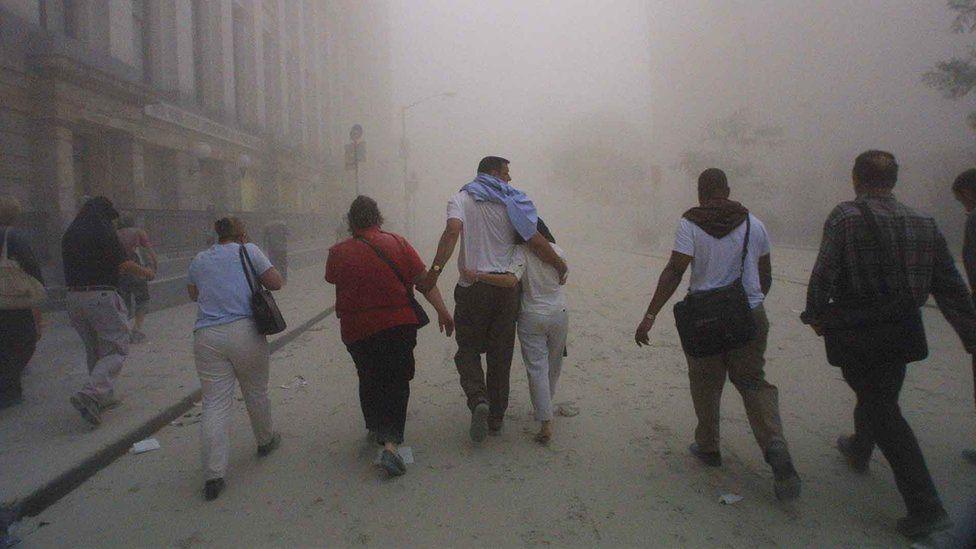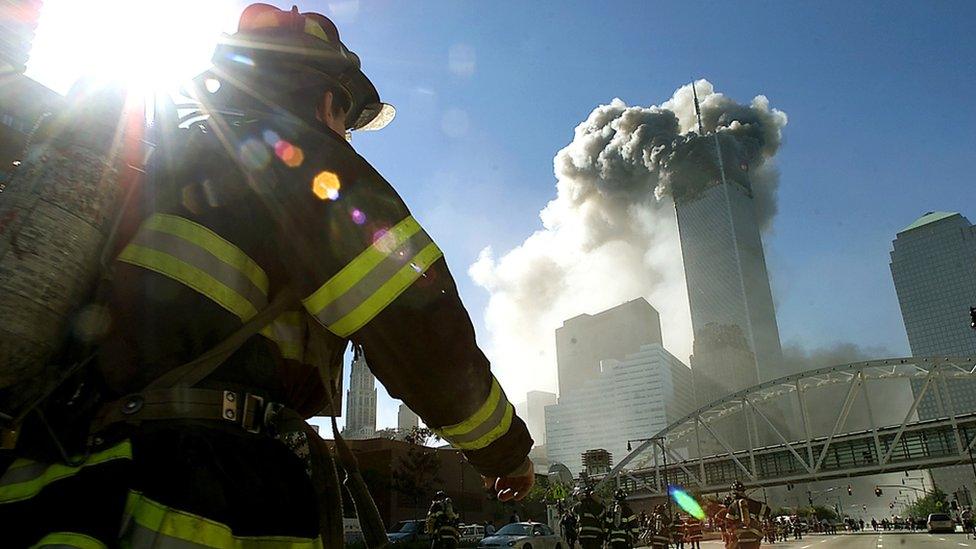9/11 anniversary: 'It changed the world and reporting on it changed me'
- Published
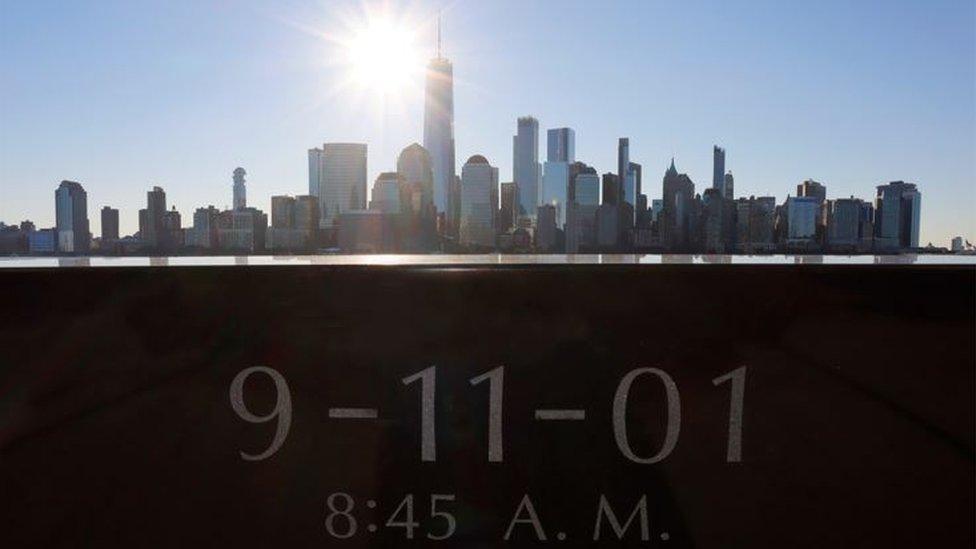
BBC Radio Ulster producer Mark McCleary was working for the BBC World Service in Boston when the 9/11 attacks were carried out.
The attacks closed the airspace and prevented news teams from London flying out.
He was asked to travel to New York and found himself reporting on a story that changed the world.
Here he shares his memories of those first few days in New York.

'A city in shock'
At 09:00 on 12 September 2001 I was standing on the back of a truck 200 yards from the smoking remains of the World Trade Centre.
An unusually-silent group of journalists was staring at the twisted metal and rubble as a group of exhausted, ash-covered rescue workers came towards us.
Larry Holloway, an engineer from New Jersey, told us how his team had worked all night, tunnelling up from the sub-basement of the Twin Towers to bring a survivor out.
Little did we know that this was almost the last person to be pulled alive from the rubble.
Twenty-four hours earlier, like millions around the world, I had watched the second plane fly into the South Tower live on TV.
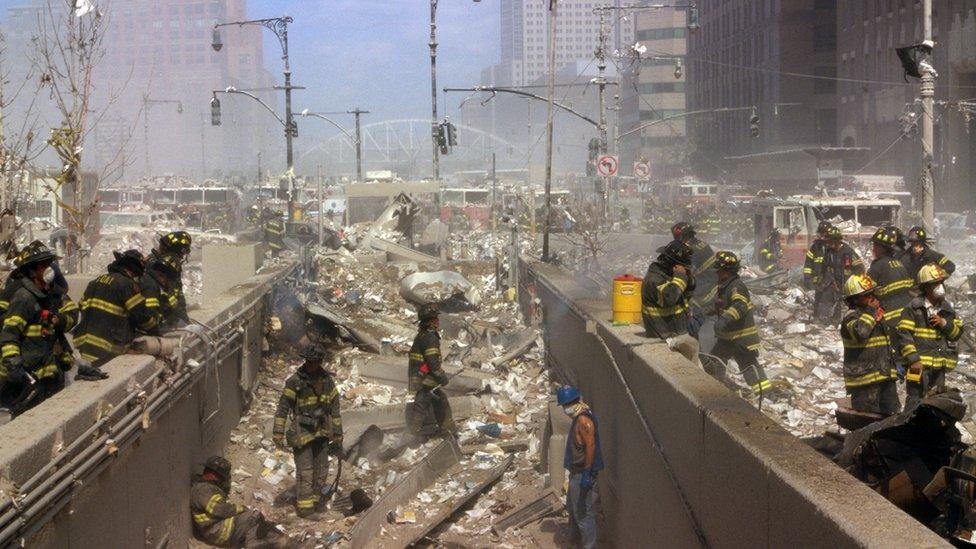
I was in the BBC World Service office in Boston and was told to go home, pack a bag and drive to New York with my colleague Clark Boyd.
As we drove, reports told of bridges into New York being closed, public transit shutting down and boats evacuating people from lower Manhattan.
We got as far as the Bronx, abandoned the car and found a subway to our hotel.
The next morning at 06:45 we walked down an eerily deserted 7th Avenue.
There were no cars on the street and very few people - New York was a city in shock.
At Ground Zero the air was thick with smoke and dust covered everything.
Listening back to the archive, I can hear the difference in my voice between the morning interview for Talkback and my croak on Evening Extra four hours later.
I remember coming back to the hotel and drinking a litre of water, trying to get the feeling of dust out of my throat.
Those first few days after the attack felt like a slightly surreal apocalyptic movie.
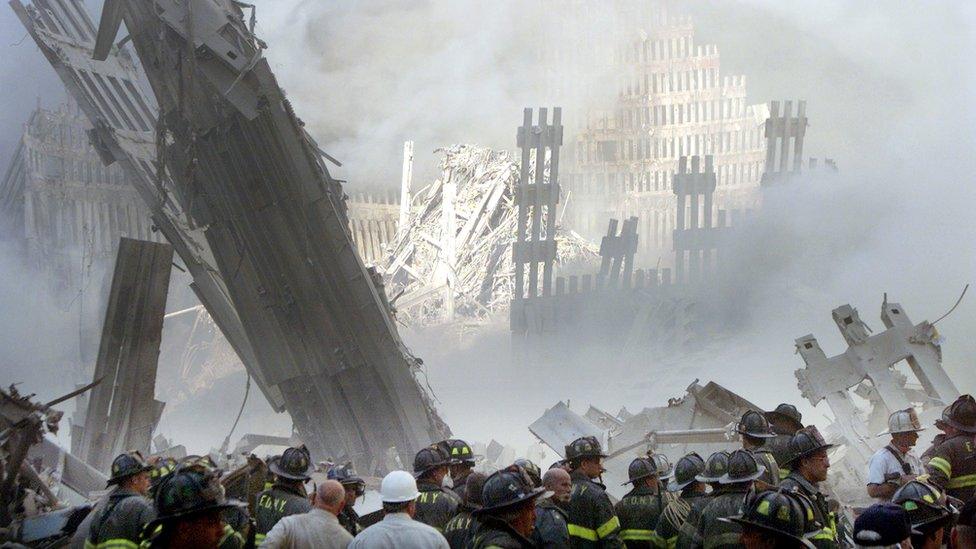
Wild rumours of more attacks swept the city - Port Police were allegedly searching for a Nigerian cargo ship in the docks with a nuclear weapon onboard and there were multiple bomb scares.
F16 fighter planes were seen circling the otherwise empty airspace over the city.
'Like a London wartime scene'
That night we were evacuated from our hotel after a bomb threat to the Empire State Building.
There was a real sense of panic as people ran down the corridors screaming.
Outside, behind a police line, thousands of people were staring up and wondering if it was going to come down too.
At that point it seemed entirely possible and I called the newsroom in London who kept me on the line ready to go on air immediately if this iconic building collapsed.
It was a false alarm and back in the hotel after a quick interview for Good Morning Ulster I discovered dozens of people with blankets sleeping on the cold marble floor of the hotel, looking like one of those wartime pictures of the London underground.
They were guests from the top floors of the hotel. Evacuation had taken them 25 minutes and now they were terrified to go back to their rooms.
I remember two incidents from the next day - one wryly amusing and one that broke me.
The first was seeing Bill Clinton in the street.
It was thought too unsafe for George Bush to visit but here was the former president driving around Manhattan and stopping to give impromptu speeches to cheering crowds.
I was then asked to interview the relatives of those still missing - they had gathered in their hundreds at the New University.
Each of them had a photograph of their missing loved one.
Each of them was clinging to the hope that their father, mother, partner or sibling would be found or might be in hospital unconscious or with amnesia.
Each of them desperately wanted to be interviewed in hopes that it might lead to their loved one being found.
'I put my head in my hands and wept'
The last person I spoke to was a Muslim woman called Talat Hamdani.
She was looking for her police cadet son, Sal, who hadn't been heard of since the morning of the attack.
She grabbed my hand and told me she had come from Pakistan 22 years ago for a better life and now her son was gone. I could find no words of comfort for her.
I walked around the corner away from the families, sat down on the pavement, put my head in my hands and wept.
It was the first time the enormity of what had happened, what I had seen and heard over the last few days, hit me.
Then I walked to the BBC office, sent all of the interviews to London and the next day I did it all over again.
By the end of the week we were physically and emotionally exhausted and ready to go home.
The airspace over North America was reopened, allowing the plane carrying BBC and ITN presenters and correspondents to leave London.
The perhaps unkindly-nicknamed EGO 1 landed in Montreal and, as they drove south to New York, we headed north back to Boston.
September 11 changed the world and it changed me.
It would be 13 years before I returned to New York and visited the memorial at Ground Zero, this time holding my own son's hand and saying a prayer for Talat Hamdani and her son Sal.
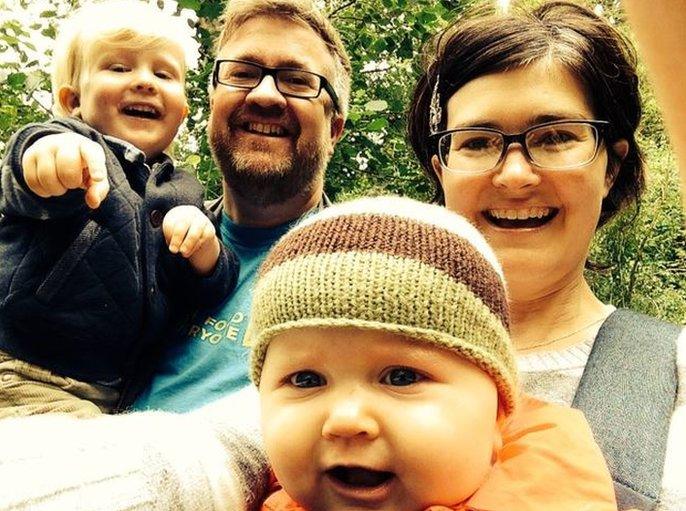
Mark returned to New York for the first time with his young family 13 years after the attacks
Related topics
- Published10 September 2021
